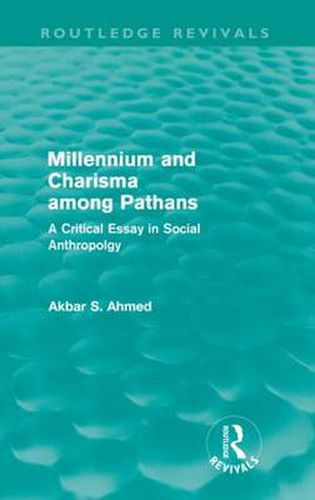Readings Newsletter
Become a Readings Member to make your shopping experience even easier.
Sign in or sign up for free!
You’re not far away from qualifying for FREE standard shipping within Australia
You’ve qualified for FREE standard shipping within Australia
The cart is loading…






First published in 1976, this Routledge Revivals reissue presents an analysis of the Swat Pathans, the people of the North-West Frontier Province of Pakistan, who belong administratively to Pakistan despite being a fiercely independent group, with their own codes and ways of life. Akbar S. Ahmed, who knows the Swat Pathans well through his family connections, presents a clear and sophisticated analysis of their complex society. The study provides an anthropological and critical re-examination of the ethnography of the Swat Pathans and the author suggests specific alternative models of social organization.
The book also represents an important contribution to the general debate in the social sciences between the ‘methodological individualists’ and the ‘methodological holists’, and challenges some of the theoretical and methodological premises in anthropology. In particular the author is critical of Professor Fredrik Barth’s study of Swat Pathans, for he believes that the ‘Swat models’ have inadvertently become the basis for generalized, and often incorrect, understanding of models of Pathan socio-political organization in the social sciences.
$9.00 standard shipping within Australia
FREE standard shipping within Australia for orders over $100.00
Express & International shipping calculated at checkout
First published in 1976, this Routledge Revivals reissue presents an analysis of the Swat Pathans, the people of the North-West Frontier Province of Pakistan, who belong administratively to Pakistan despite being a fiercely independent group, with their own codes and ways of life. Akbar S. Ahmed, who knows the Swat Pathans well through his family connections, presents a clear and sophisticated analysis of their complex society. The study provides an anthropological and critical re-examination of the ethnography of the Swat Pathans and the author suggests specific alternative models of social organization.
The book also represents an important contribution to the general debate in the social sciences between the ‘methodological individualists’ and the ‘methodological holists’, and challenges some of the theoretical and methodological premises in anthropology. In particular the author is critical of Professor Fredrik Barth’s study of Swat Pathans, for he believes that the ‘Swat models’ have inadvertently become the basis for generalized, and often incorrect, understanding of models of Pathan socio-political organization in the social sciences.